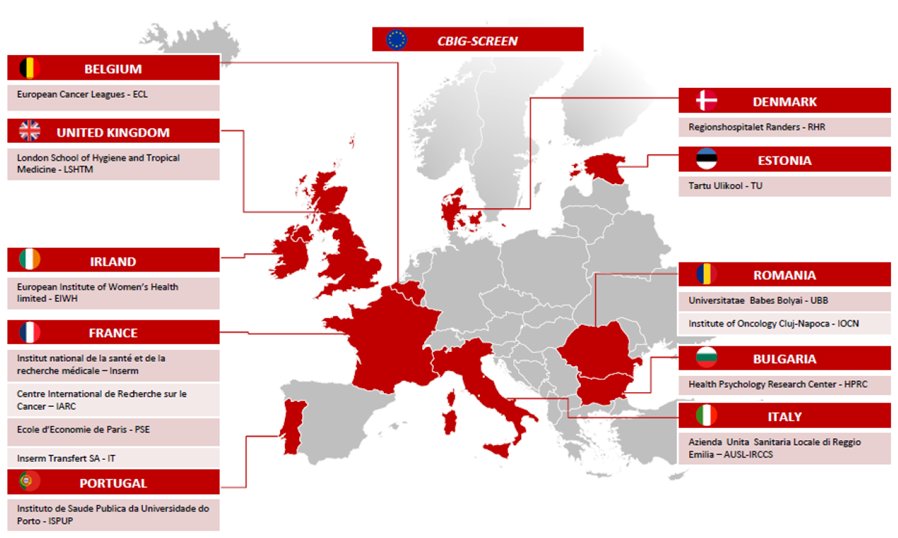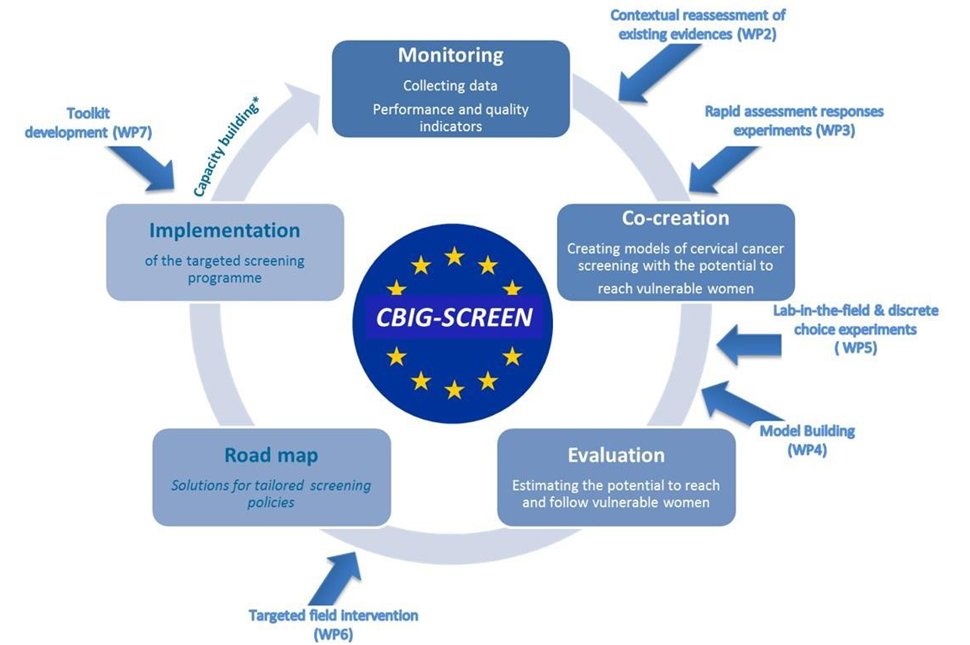Home / Reseach Projects / Cervical cancer prevention and early detection
Research projects
Cervical cancer prevention and early detection
Working collaboratively with vulnerable women to identify the best implementation gains by screening cervical cancer more effectively in European countries (CBIG-SCREEN Study)
| Study sites: | Estonia, Portugal and Romania |
| Principal investigator (PI) from IARC: | P. Basu |
| PIs from collaborating institutions: |
|
| Map: |  |
| Start date: | 2020 |
| Closure date: | Ongoing |
| Objectives: | Though cervical cancer screening (CCS) programmes drastically reduce cervical cancer mortality, they remain largely inaccessible and underused by subpopulations of vulnerable women, creating inequality in the European healthcare system. Our multi-centric implementation research study aims to tackle inequality in CCS continuum in Estonia, Portugal and Romania. These ‘focus countries’ have been identified to represent different healthcare settings within Europe. |
| Methodology: |  CBIG-SCREEN will create a Europe-wide knowledge framework around barriers to CCS and generate policies, programmes, communications and other required services to meet the needs of underserved women with inherent high-risk of cervical cancer and low access to proper healthcare routes. CBIG-SCREEN will be working collaboratively with vulnerable and underserved women to identify the interventions that will more effectively engage and retain them in CCS programmes in the three countries. We will design a protocol of providing CCS services to the vulnerable women through stakeholder engagement and structured reviews of current policies. We will implement CCS with new protocol in real programmatic settings in the focus countries and measure the outcomes using the ‘logic model’, A comparison with the existing ‘standard-of-care’ will allow us to objectively document the improvement in participation of the vulnerable women to the entire CCS care continuum, starting from screening to treatment. View the CBIG-SCREEN Study consortium website. |
| Study outcomes: | Our interventions aim to increase screening participation among vulnerable women from current 26% to 45% and intend to offer support to policymakers and national programmes to help Europe reach the WHO 2030 target of screening >70% of women for cervical cancer. |
| Funding: | European Commission - Research and Innovation (BE) |



